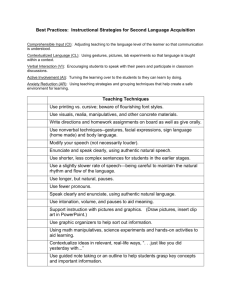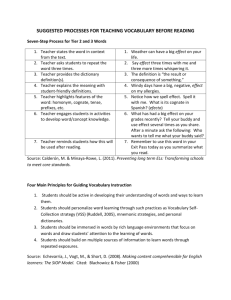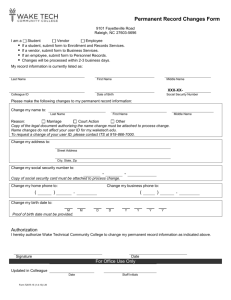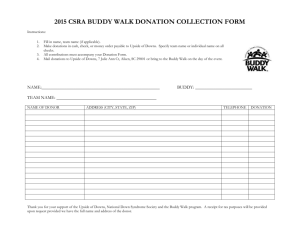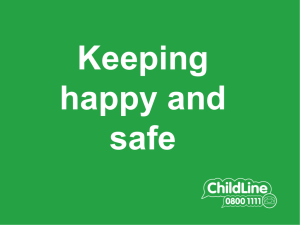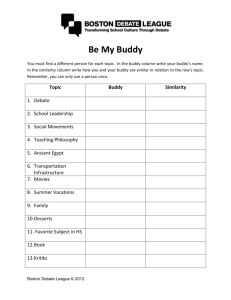Guide to being an on-boarding buddy
advertisement
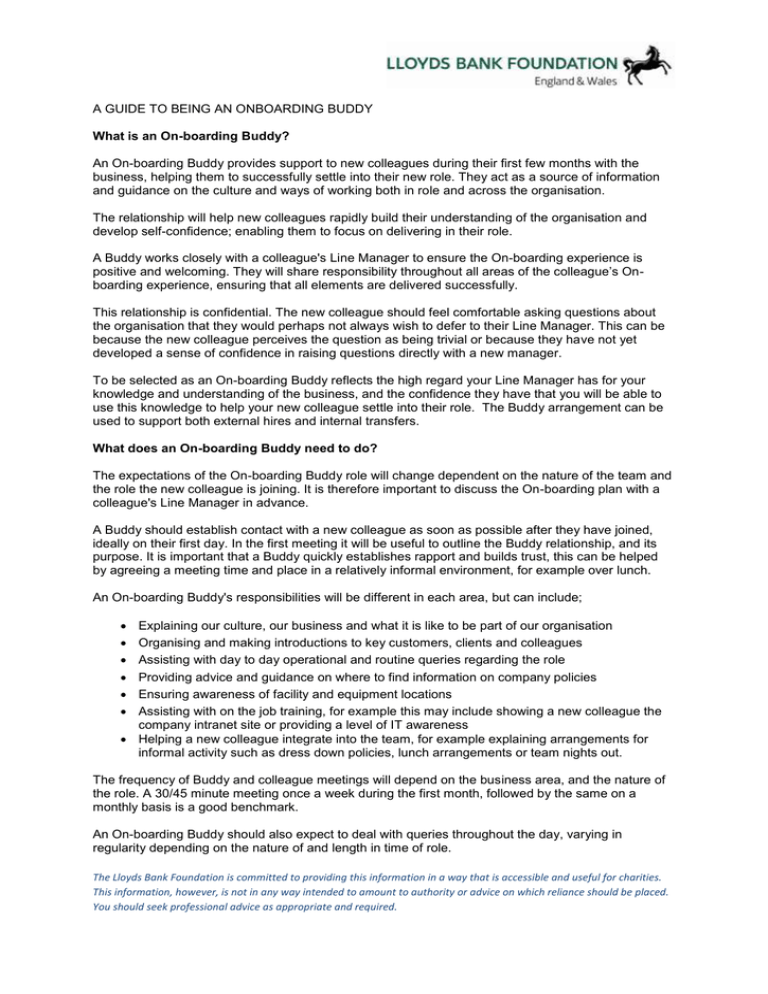
A GUIDE TO BEING AN ONBOARDING BUDDY What is an On-boarding Buddy? An On-boarding Buddy provides support to new colleagues during their first few months with the business, helping them to successfully settle into their new role. They act as a source of information and guidance on the culture and ways of working both in role and across the organisation. The relationship will help new colleagues rapidly build their understanding of the organisation and develop self-confidence; enabling them to focus on delivering in their role. A Buddy works closely with a colleague's Line Manager to ensure the On-boarding experience is positive and welcoming. They will share responsibility throughout all areas of the colleague’s Onboarding experience, ensuring that all elements are delivered successfully. This relationship is confidential. The new colleague should feel comfortable asking questions about the organisation that they would perhaps not always wish to defer to their Line Manager. This can be because the new colleague perceives the question as being trivial or because they have not yet developed a sense of confidence in raising questions directly with a new manager. To be selected as an On-boarding Buddy reflects the high regard your Line Manager has for your knowledge and understanding of the business, and the confidence they have that you will be able to use this knowledge to help your new colleague settle into their role. The Buddy arrangement can be used to support both external hires and internal transfers. What does an On-boarding Buddy need to do? The expectations of the On-boarding Buddy role will change dependent on the nature of the team and the role the new colleague is joining. It is therefore important to discuss the On-boarding plan with a colleague's Line Manager in advance. A Buddy should establish contact with a new colleague as soon as possible after they have joined, ideally on their first day. In the first meeting it will be useful to outline the Buddy relationship, and its purpose. It is important that a Buddy quickly establishes rapport and builds trust, this can be helped by agreeing a meeting time and place in a relatively informal environment, for example over lunch. An On-boarding Buddy's responsibilities will be different in each area, but can include; Explaining our culture, our business and what it is like to be part of our organisation Organising and making introductions to key customers, clients and colleagues Assisting with day to day operational and routine queries regarding the role Providing advice and guidance on where to find information on company policies Ensuring awareness of facility and equipment locations Assisting with on the job training, for example this may include showing a new colleague the company intranet site or providing a level of IT awareness Helping a new colleague integrate into the team, for example explaining arrangements for informal activity such as dress down policies, lunch arrangements or team nights out. The frequency of Buddy and colleague meetings will depend on the business area, and the nature of the role. A 30/45 minute meeting once a week during the first month, followed by the same on a monthly basis is a good benchmark. An On-boarding Buddy should also expect to deal with queries throughout the day, varying in regularity depending on the nature of and length in time of role. The Lloyds Bank Foundation is committed to providing this information in a way that is accessible and useful for charities. This information, however, is not in any way intended to amount to authority or advice on which reliance should be placed. You should seek professional advice as appropriate and required. The following workflow is a guide on how the relationship may evolve. This is a guide only and you should use your judgement, in discussion with the new colleague, to agree frequency and length of meetings. What you are not expected to do There is a clear distinction between the Buddy role and more formal roles within the organisation such as Line Manager or mentor. For the avoidance of doubt, you are not expected to: Be an expert in all areas of the job Set any objectives or review performance Perform any elements of the new colleagues role, or carry out any of their duties, complete any administrative tasks on their behalf (except where this forms part of your role, for example a Personal Assistant) Replace any formal training a new colleague should receive Deal with any performance concerns or issues , or give any feedback which you do not feel comfortable with Deal with detailed, specialised or complex questions which you feel unable to respond to. If you are unable to deal with questions you should direct these to their Line Manager If for any reasons you have concerns while carrying out your role as a Buddy you should speak to your Line Manager in the first instance. The Lloyds Bank Foundation is committed to providing this information in a way that is accessible and useful for charities. This information, however, is not in any way intended to amount to authority or advice on which reliance should be placed. You should seek professional advice as appropriate and required.
